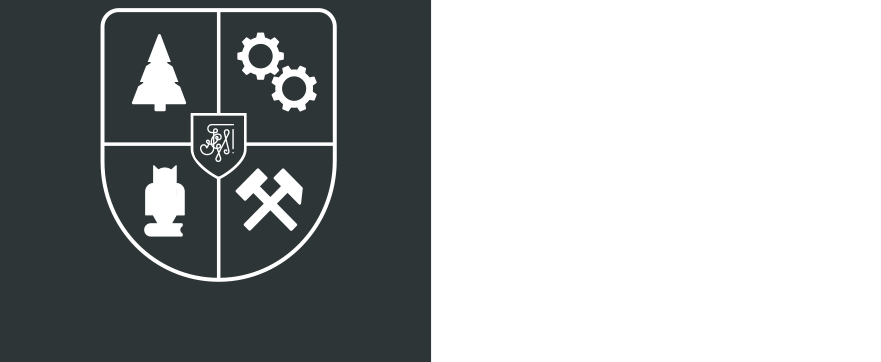Our outstanding characters: We look with pride on our GlC! alumni as outstanding persons of our society
We are a community of students, which have dedicated to promote excellence. So it is surprising that in the circle of our students fraternity numerous extraordinary profiles can be found. We would like to introduce you to some of these important persons to show you up what inspiring experiences a membership with us can open up for you.
We believe that networking, sharing knowledge and experiences, we can bring in our high potential. Whether you’re interested in business, science or culture, you’ll find similar-minded people which will coach you on your personal goals and your professional career.

Prof. Dr.-Ing. Dieter Ameling
Dieter Ameling was a German industrial manager. He studied ferrous metallurgy as well as metallurgy and materials science at Clausthal University of Technical from 1961 to 1967. He received his doctorate there in 1971.
Prof. Ameling was successively general manager of the electric steel mill of Hamburger Stahlwerke GmbH, plant director of Thyssen Niederrhein AG, head of production operations at the Duisburg Hochfeld plant, director of business administration in the technology department of Thyssen Stahl AG, member of the executive board of Saarstahl AG in Völklingen and chairman of the management board of Krupp VDM GmbH.
In 1997 he was appointed honorary professor at the Clausthal University of Technology. As an executive board member of the Verein Deutscher Eisenhüttenleute (VDEh) and later chairman of the Stahlinstitut VDEh, he merged the VDEh with the Wirtschaftsvereinigung Stahl in 2000. From 2000 to 2008 he was also President of the German Steel Federation.
Ameling was Chairman of the Association of Friends of Clausthal University of Technology in 2003 and Chairman of the Board of Trustees of Volkenroda Monastery from 2006 to 2015. He is very committed to Volkenroda, especially since the Christ Pavilion from EXPO 2000, also called the “Steel Church”, was rebuilt there in 2001.
From 2007 to 2009 he was a member of the Senate of acatech – Academy of Science and Engineering, Munich/Berlin. The VDEh Steel Institute appointed him an honorary member. From 2005 to 2010, Ameling was a member of the DIN Executive Committee. Due to his services to the standardization of iron and steel, he became a member of the Waldemar Hellmich Circle. The Federal Association of German Recycling and Waste Management Companies (BDSV) awarded him the Gold Badge of Honor.
After leaving his posts at the Steel Center, he was active as an industrial consultant. At Eurasian Natural Resources Corporation PLC (ENRC), listed on the London Stock Exchange, he was a non-executive board member from 2010 to 2013.[3] He was also a member of the expert advisory board of the EIKE association, which disputes the scientific consensus of man-made global warming.
Ameling was a member of the Rotary Club of Oberhausen from 1981 with an interruption as a member of the RC Saarbrücken from 1992 to 1995. Furthermore, he was a member of the Catholic student fraternity AV Glückauf-Salia Clausthal-Zellerfeld from 1961.
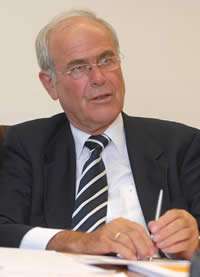
(*17.8.1941 in the Osnabrück region;
deceased 4.9.2020)

Dr.-Ing. Karl-Heinz Dörner
Dr. Karl-Heinz Dörner was born in Wissen/Sieg on March 27, 1938. After graduating from high school and completing an internship at the Niederschelden blast furnace and steel mill near Siegen, he began studying ferrous metallurgy in the winter semester of 1957 in Clausthal-Zellerfeld.
Right in his first semester he joined the AV Glückauf-Salia fraternity. After passing his preliminary exams, he transferred to RWTH Aachen and also became a member of the KDStV Franconia there.
As a scientific assistant to Prof. Schenck, he was awarded a doctorate in engineering in February 1967. He was also awarded the “Borschers Plakette” by the rector in May 1967. In May of the same year, he started work at the rolling mill of VAW Aluminium AG in Grevenbroich as a member of an internal team of consultants with the task of reducing the excessively high metal stocks to a necessary minimum. At the end of 1967 he was appointed assistant to the plant manager and from 1968 to 1972 as production manager. He then rose to plant manager and in 1975, as business unit manager, was additionally given responsibility for sales at the plants in Grevenbroich and Norf. After a further 10 years, he was appointed to the Executive Board of VAW Aluminium on January 1, 1986, where he was responsible for all plants of the Rolling Division in Europe and one in Asia. He remained in this position until his retirement.
The new owner of the company, Norsk Hydro subsequently appointed him to the Supervisory Board. At the same time, from 2002 to 2006, he held the honorary post of Chairman of the Wirtschaftsvereinigung Metalle in Berlin, which represents the interests of producers and processors of light, non-ferrous and heavy metals with around 110,000 employees. He was also a member of the extended Presidium of the Federation of German Industries (BDI), where he headed the Presidial Working Group on International Raw Materials Issues.
In recognition of 39 years of service to the metal industry, he was honored at the end of his working life with a commemorative plaque on the path of the Nonferrous Metallurgy in Goslar, the city of the beginnings of German mining and the processing of the ores of the Harz Mountains.
During his responsibilities at VAW Aluminium AG, on October 4, 1989, H. M. King Carl Gustaf of Sweden as “Knight First Class of the Royal Order of the North Star”. On the occasion of this event, the royal couple visited the rolling mill in Grevenbroich.
Karl-Heinz Dörner is married and has three children. He lives in Grevenbroich and is also involved in the Rotary Club.
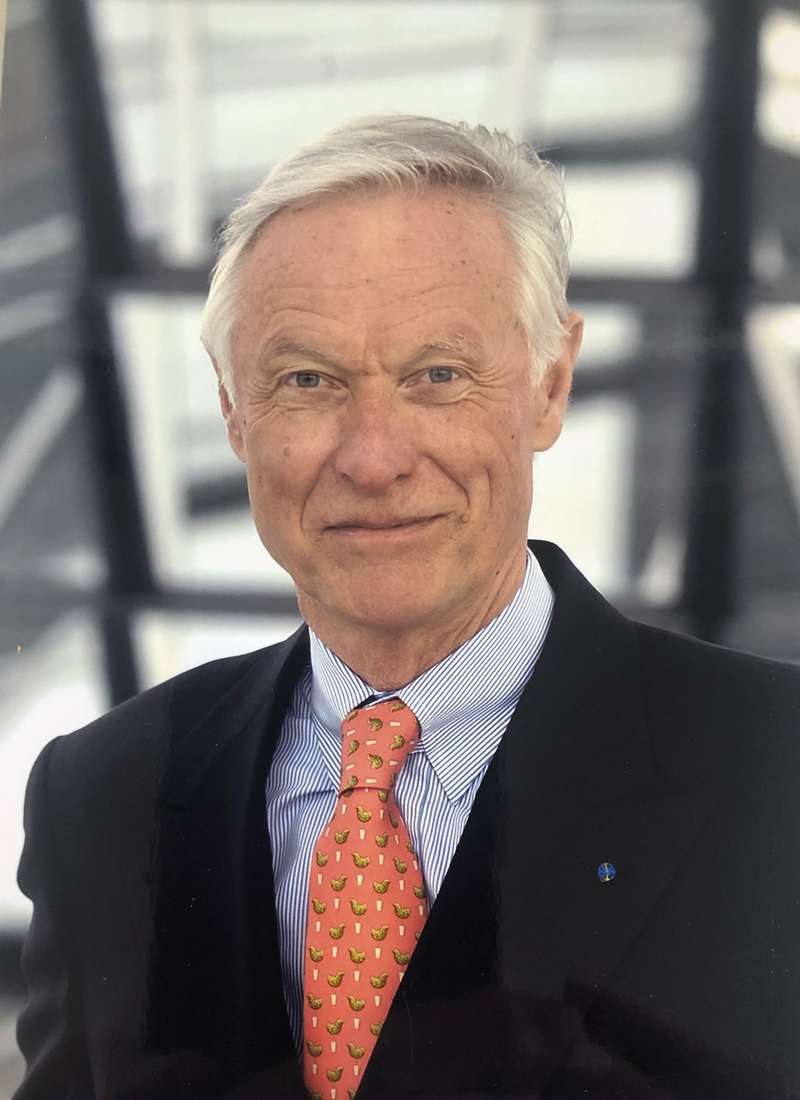
(*27.3.1938 in Wissen/Sieg)

Dipl.-Ing. Helmut S. Erhard
Dipl.-Ing. Helmut S. Erhard was born on 09.11.1943 in Klingenbrunn near Grafenau.
He joined the AV Glückauf-Salia in the winter semester of 1965 after graduating from high school as a student of rocks and soils at the Clausthal Technical University. His thesis in 1971 covered “The Determination and Significance of Water Vapor Diffusion Characteristics of Nonmetallic Inorganic Materials.”
He then joined Heidelberger Zement AG, where he took on various management tasks in Germany and abroad. In 1996, he became Managing Director of the Heidelberg Technology Center (HTC), which developed into an internationally recognized center of excellence under his leadership. In 1999, Helmut S. Erhard became a member of the Managing Board and was appointed President and Chief Executive Officer of the American subsidiary Lehigh Cement.
After his retirement on December 31, 2007, he was appointed to the Supervisory Board of what is now HeidelbergCement AG.
Helmut Erhard earned the reputation of being an excellent professional, a manager of action and blessed with far-reaching entrepreneurial thinking and action. As an alumnus, he always remained closely associated with the Clausthal University of Technology and the Institute for Non-Metallic Materials. Helmut S. Erhard was married lived in Heidelberg and died on 25.04.2008.
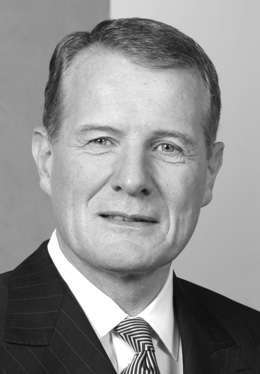
(*09.11.1943 in Klingenbrunn;
deceased 25.04.2008)

Dr. Stephan Feldhaus
Dr. Stephan Feldhaus was born in Mülheim an der Ruhr in 1967. After graduating from high school and completing his military service, he studied ferrous metallurgy at the Technical University of Clausthal for four semesters starting in 1987, where he obtained his intermediate diploma.
He became involved with two leadership batches in our sorority.
After a study visit to Edinburgh, he continued his studies at RWTH Aachen University and obtained his diploma in 1993. He worked as a scientific assistant at the Institute of Ferrous Metallurgy at RWTH Aachen University from 1994 to 1997 and received his doctorate there in 1998. At the same time, he studied business administration at RWTH Aachen University and obtained the additional degree of Dipl.-Wirt.-Ing. in 1996.
Since 1990 he is also a member of the KStV Grotenburg-Lusatia zu Aachen.
Since 1998 he has been working for SMS Schloemann Siemag AG, Düsseldorf, now SMS group. Initially as a commissioning engineer with longer stays in India, Malaysia, Egypt and Italy. From 2002 to 2006, he was responsible as project manager for major projects in Germany and Russia. Since 2006 he has been working for SMS Concast AG in Zurich. SMS Concast designs, builds and supplies continuous casting plants for the steel industry worldwide. Here, first as Head of Contract Handling from 2006 to 2008, then as Head of Business Unit Continuous Casting from 2008 to 2013 and subsequently became Executive Vice President Technology. In 2019, he was appointed CEO.
Stephan Feldhaus is also a member of the advisory board of Probatwerke in Emmerich (mechanical engineering for the coffee, cocoa and chocolate industries) and a member of the board of directors of the start-up company Synhelion SA (production of sustainable artificial fuels).
Stephan is married and has two grown-up daughters. He is involved in the Catholic parish of St. Andreas Uster/Switzerland (lector, church foundation) and is interested in history and art. He likes to spend his free time in the Swiss mountains.
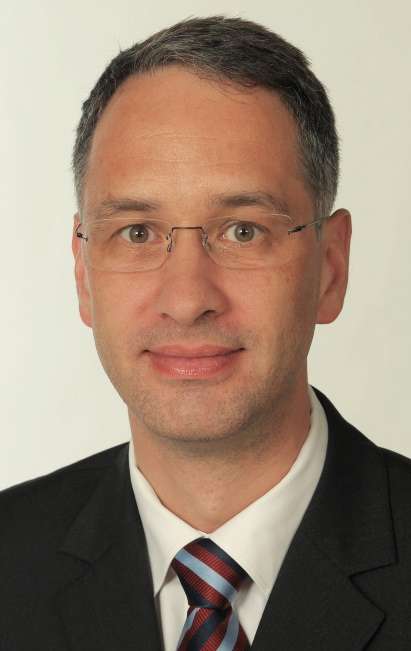
(*1967 in Mülheim an der Ruhr)

Dr.-Ing. Heinrich Heiermann
Dr.-Ing. Heinrich Heiermann was born on March 23, 1938, in Beuthen, Upper Silesia, the son of a miner.
After the expulsion the family lived in the Ruhr area. After graduating from high school in Bottrop, he completed a one-year internship in coal mining before transferring to the then Clausthal Mining Academy to study in the winter semester of 1958/59. Already in his first semester he joined the Av Glückauf-Salia, of which his father had already been a member. The studies in Clausthal and Berlin were completed with the diploma in 1963.
He acquired many years of operational experience starting in 1964 at the former Rheinstahl Bergbau AG and its successor companies. In 1967, the final report of an operational research contract of the ECSC, a predecessor organization of the European Union, was presented as a dissertation at the TU Clausthal. Doctorate in 1967 at the Institute for Mining Science II (Prof.Wöhlbier, Prof.Törnig). Subsequently, management duties at various mines of Ruhrkohle AG (RAG), which was founded in 1970. 1984 Mine manager at the Niederberg mine.
1986 Appointed General Representative of RAG, one year later appointed member of the Executive Board responsible for Technology/Operations. The following years were characterized by the responsible task of leading RAG into a future without mining.
Together with all stakeholders and politicians, this has been achieved without leading to major social problems.
1998 Retirement and assumption of consulting activities, especially abroad. Heiner Heiermann is married, has a grown-up daughter and lives on the Lower Rhine, in Dinslaken. He is a member of The LIONS organization.
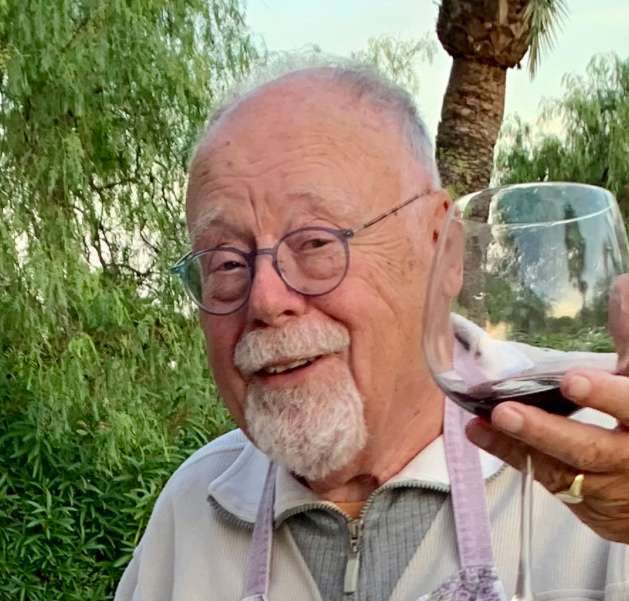
(*02.03.1938 in Beuthen)

Dr.-Ing. Hans-Peter Hennecke
Dr. Hans Peter Hennecke was born in Berlin on March 2, 1938. After completing various internships in Germany and abroad and passing the miner’s examination at the Kahlenberg ore mine in Breisgau, he passed his examinations at the then Clausthal Mining Academy and joined AV Glückauf-Salia, where he began his professional career as assistant manager and authorized signatory at the Fretter dolomitic lime works.
After this company was taken over by RWK in 1970, he became deputy plant manager of the Hönnetal plant and plant manager of the Dornap plant. In 1980, he was promoted to Managing Director of RWK Kalkwerke GmbH and RWK Plantechnik GmbH. After the takeover of RWK by Readymix AG, he joined Rheinische Kalksteinwerke und Dolomitwerke GmbH and its successor companies as Managing Director until his retirement, most recently as Chairman of Rheinkalk GmbH. He was jointly responsible for the merger of RWK and Rheinkalk of the so-called large lime solution under a new owner.
He was involved in many organizations: from 1978 to 2001 at the Bundesverband der Deutschen Kalkindustrie e.V. (Federal Association of the German Lime Industry) and its affiliated institutions. In 1985, he was awarded a doctorate in engineering from RWTH Aachen University. From 1988 to 1998, he served as chairman of the socio-political Working Group for Stone and Earth, and from 1984 to 2001 he was a member of the Federal Association of the German Lime Industry. In these various offices, he succeeded in integrating the East German sociopolitical associations into the local association structures after reunification.
From 1984 to 1990, he was also Chairman of the Employers’ Association of the Lime and Dolomite Industry. From 1994 to 2000, he also served on the board of the Employers’ Association for Cement and Building Materials (Arbeitgeberverband Zement- und Baustoffe e.V.), representing the interests of the building materials industry. From 1997 to 2000, he was one of the board members of the Rheinischer Unternehmensverband Steine und Erden e.V. (Rhenish Association of Companies in the Stone and Earth Industry) and worked on the collective agreements for the refractory industry. At the Confederation of German Employers’ Associations, Hans Peter Hennecke was a member of the Wage and Collective Bargaining Policy Committee from 1988 to 1999. He also served on the General Assembly of the Düsseldorf Chamber of Industry and Commerce from 1986 to 2000. He was awarded the silver badge of honor of the Düsseldorf Chamber of Industry and Commerce for his services. Having already served as an honorary judge at the labor court in Hamm from 1984 to 1988, he has held the office of honorary judge at the state labor court in Düsseldorf since 1988. He also held the office of Philistine Senior of the AV Glückauf-Salia for several years until 1988.
Even in retirement, Hans Peter Hennecke continued to volunteer for a long time in various activities, such as the Wülfrath Riding and Driving Club and the St. Joseph Catholic Parish, Velbert. Hans Peter Hennecke has earned distinctions in various areas of his life and was awarded the Federal Cross of Merit, First Class, in 2001. In 2007, together with his wife and three daughters, he founded the foundation under public law “Give all children a chance” in gratitude for his life.
Today he lives in Wolfratshausen and maintains many and old encounters with old friends and the family circle with three children and six grandchildren and keeps fit according to his age by hiking and cycling tours.
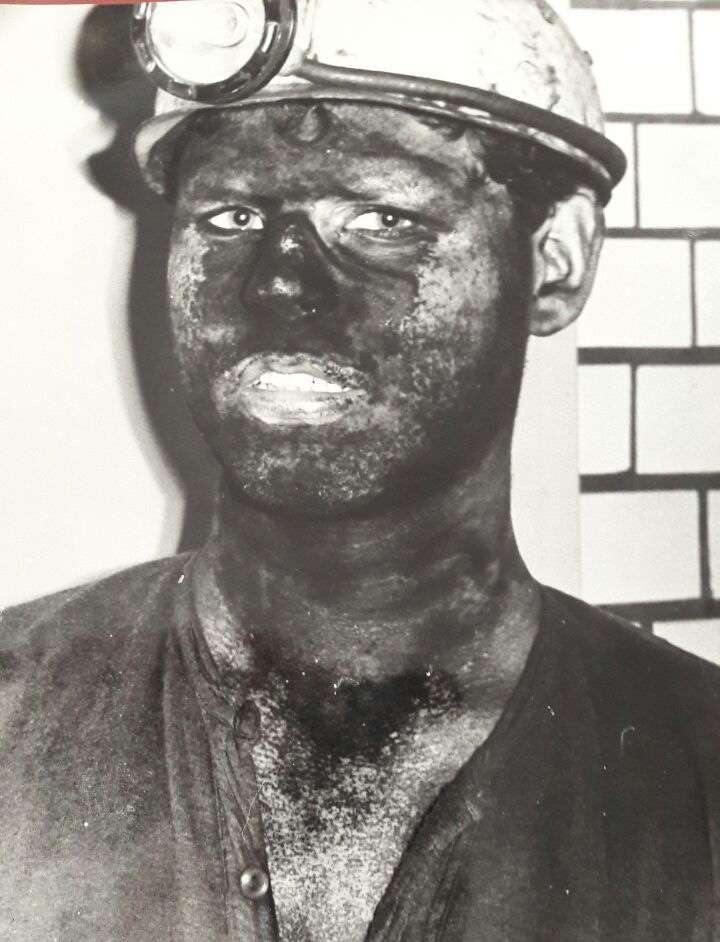
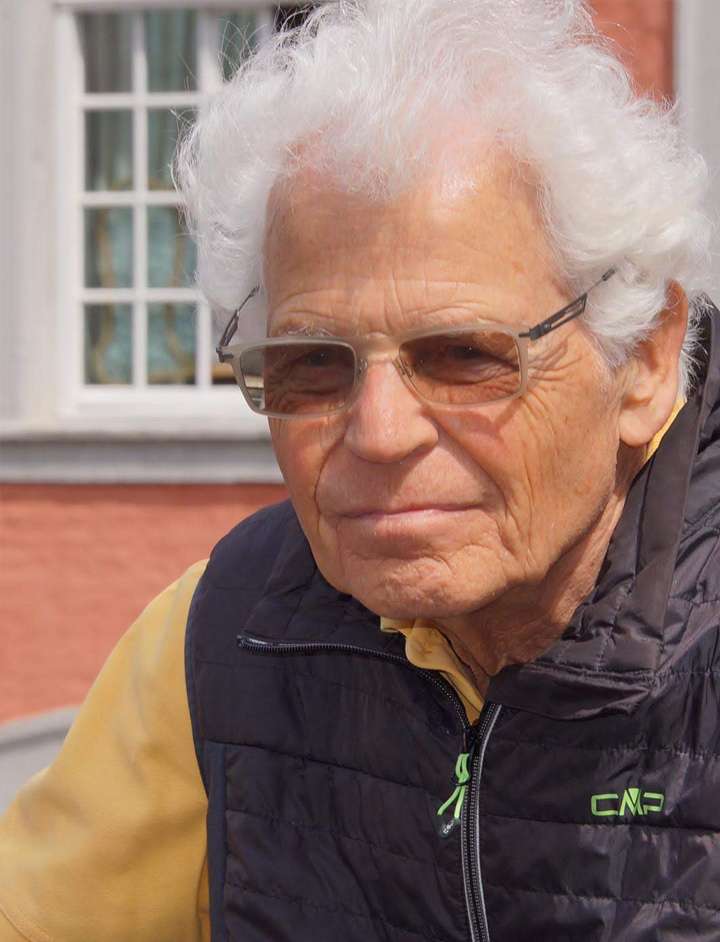
(*02.03.1938 in Berlin)

Dr.-Ing Hans Imgrund
Dr.-Ing. Hans Imgrund was born in Wesel Ginderich on May 25, 1938. After graduating from high school in 1958, he completed a preliminary internship at the blast furnace and steel mill of HOAG-Hüttenwerk Oberhausen AG. From the winter semester 1958/59 he studied ferrous metallurgy for two semesters at the Technical University of Berlin and then transferred to the Clausthal Mining Academy, where he also joined AV Glückauf-Salia.
In November 1963 he graduated as Dipl.-Ing. with the overall grade “very good”. In June 1966, as an assistant to Professor Wever at the TU Berlin, Institute for Metal Physics, he was awarded a doctorate in engineering.
His professional career began from 1969 to 1972 in Düsseldorf at Stahl- und Röhrenwerk Reisholz GmbH, in the testing department headed by Dr.-Ing. Clemens Florin, also a member of the AV Glückauf-Salia, head of the departments of high-temperature steels and metallography. Here he had his first professional encounter with molybdenum as a steel refiner. In 1973 he joined Climax Molybdenum GmbH in Düsseldorf, a subsidiary of Amax Inc. as Development Engineer. At that time Amax was a diversified mining group, active in molybdenum, nickel, iron ore, oil and gas. From 1976, as Sales Manager, he was responsible for marketing and sales of molybdenum and nickel – Germany and Eastern Europe. In 1978 he was appointed Managing Director of Climax Molybdenum GmbH and acted as Director of Sales for Central and Eastern Europe and Scandinavia. In 1980, Hans Imgrund also graduated from the Program of Management Development PMD39 at Harvard Business School in Boston, Massachusetts, as the basis for a successful career in international management. In 1981, he was promoted to Vice President Marketing and Sales Europe of Climax Molybdenum S.A. and moved with his family to Paris, which was associated with the start of school for his children Jan and Philipp at Lycee International. The second oil crisis in 1981 led to dramatic economic crises worldwide. Demand for molybdenum fell by 40% between 1979 and 1983. In 1985 followed the appointment as Senior Vice-President of Amax Europe S.A.,responsible for Marketing&Sales of Molybdenum, Nickel, Iron Ore with sales offices in Düsseldorf, London, Genoa and Stockholm. In June 1986 Hans Imgrund changed to Cyprus Minerals Company, Denver, Colorado as Sales Director of Molybdenum for Europe, Asia and Africa. Cyprus Minerals was the second largest copper producer in the USA at the time, producing significant quantities of molybdenum as a by-product. In October 1986, the new German company Cyprus Metals GmbH was launched, replacing Climax as market leader based on molybdenum products sold in Europe as early as 1988. Hans Imgrund’s philosophy was that customer satisfaction comes before profit maximization and the joint development of Mo-containing materials. In 1989 he acted as co-founder of IMOA – International Molybdenum Association (www.IMOA.info) and served as IMOA President in rotation from 1992 to 1994. In 1993 Cyprus and Amax merged to form Cyprus Amax Minerals Company, whereupon the Düsseldorf offices were merged to form Cyprus Climax GmbH and the radius of action was extended to include Japan. A reorganization of the sales offices in Europe and Japan with locations in Düsseldorf and London took place in 1993.
In 2003 Hans Imgrund retired and continued to act as a consultant and networker within IMOA and at international customer conferences in Düsseldorf. Hans Imgrund is married, has two sons and lives in Meerbusch.
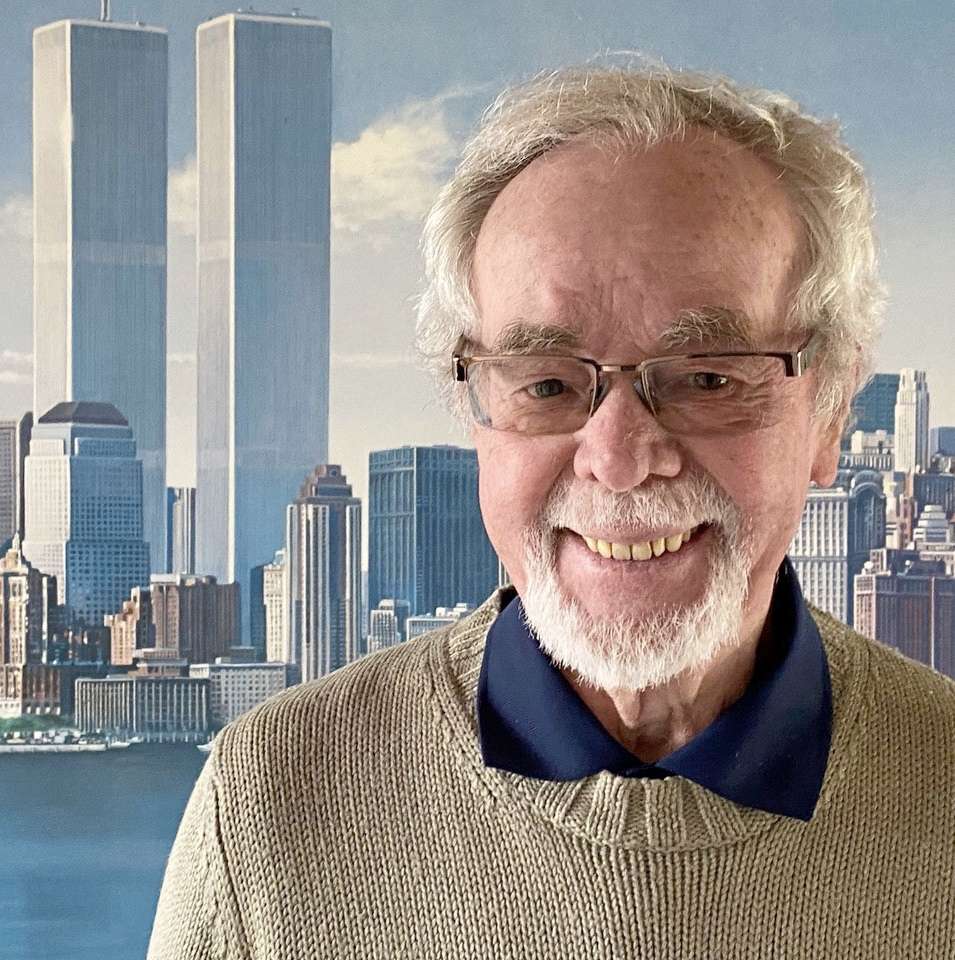
(*25.May 1938 in Wesel Ginderich)

Dr.-Ing. Bernhard Kleinsorge
Dr.-Ing. Bernhard Kleinsorge was born on September 28, 1966 in Meschede, Sauerland. After graduating from high school in 1986, he completed an internship as a mining technician for almost a year as a prerequisite for studying mining. Thereby he got to know first practice in different mining operations like lead/zinc and hard coal underground, preparation technology for hard coal and pyrite as well as limestone mining in different quarries and lime burning.
After this experience, he came to the TU Clausthal in the summer semester of 1987 and studied mining. He earned his undergraduate degree after four semesters, then took a semester off, and after another five semesters was able to complete his major in 1992. Of lasting memory during the vacation semester was a very extended trip to the United States with a Bundesbruder, another lengthy internship in the lime industry, and the reunification of the two German states that took place during that time.
After completing his studies, the opportunity arose to take on the role of personal assistant to the rector at the Clausthal University of Technology and, in parallel, to complete his doctorate at the then Mining Institute and the Institute for Processing in cooperation with a leading company in the lime industry.
After completing his doctorate, Bernhard Kleinsorge was able to start his first professional challenge in 1995 as an operating engineer for underground limestone mining in a subsidiary of this lime company. This led him to his first management positions until the year 2000, when he was appointed technical managing director. Due to various restructuring measures, he subsequently sought a new challenge at Lafarge SA, a French company in the cement industry. After working as a project engineer first at the German headquarters and then at the technical center in Vienna, he became plant manager of a cement plant near Karlsruhe in 2002. There, after a few years, the nice task arose for an engineer to be allowed to build a new kiln line. He then moved with the family to the technical center for Western Europe in France in 2008. After interesting years in Lyon and responsibility for the technical development of Lafarge’s cement plants in Spain, Italy and Greece, he took on the role of plant manager at what was once the GDR’s largest cement plant in Saxony-Anhalt in 2010. The greatest challenge here was the further development of the organization and personnel in order to master the ongoing technical challenges. In 2015, the opportunity arose to help organize the conversion of two rotary kilns at the two largest cement plants in Germany at Heidelberg Zement, in order to be able to take on the role of Technical Director for the Cement Division in Germany with 8 cement plants and 3 grinding plants in 2016.
In addition to his professional duties, Bernhard Kleinsorge has for many years been involved on a voluntary basis in various committees of employers’ associations, the cement industry association and in the employers’ liability insurance association, which has led in particular to experience in social partnerships.
Bernhard is married and has two adult children in education. He has been a member of the Rotarians since 2014, has been involved in local politics at his home in Baden-Württemberg for many years, and in the Catholic Church as a foundation councilor, lector, communion helper and the parish team.
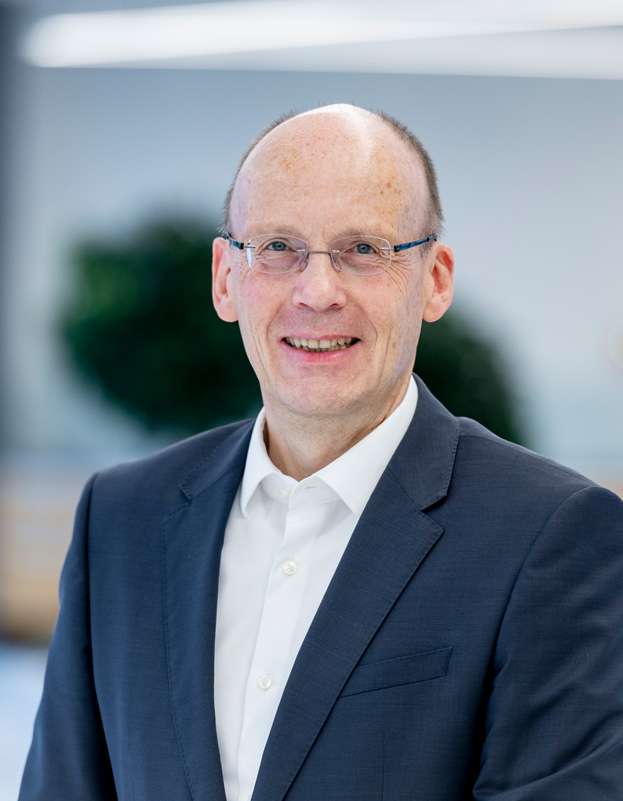
(*28 September 1966 in Meschede, Sauerland)

Prof. Dr.-Ing. habil. Prof. h. c. Dr. h. c. Prof. Lothar Kroll
Lothar Kroll is a German university professor. He studied mechanical engineering at the Technical University of Opole (Poland) from 1978 to 1981 and then mechanical engineering at the Technical University of Clausthal from 1982 to 1987. As a research assistant at the Institute of Engineering Mechanics, he received his Ph.D. there in December 1992. In 1993, he moved to the TU Dresden, where he habilitated in June 2005 and was awarded the Venia Legendi for the scientific field of “Strength Analysis of Anisotropic Fiber Composite Structures”.
In June 2006, Lothar Kroll accepted the appointment as university professor for the professorship “Lightweight Structures and Plastics Processing” at the TU Chemnitz. Starting with ten scientific staff members, he built up the largest university professorship in Germany with today about 200 employees. In recognition of his outstanding services to raising the profile of the teaching and research field of “Sustainable Key Technologies in Lightweight Construction”, he was awarded the Medal of Honor of the TU Chemnitz in 2011. Lothar Kroll has been the spokesperson of the research cluster “Merge Technologies for Resource Efficiency” (MERGE) since 2012, which was funded by the DFG as a federal excellence cluster from 2012 – 2019 and has been established as the central institution “MERGE” at the TU Chemnitz since 2013.
Through his personal commitment and outstanding expertise in the field of lightweight construction, Prof. Kroll has initiated, successfully applied for and worked on numerous projects with industry. The collaborative projects with small and medium-sized enterprises (SMEs) under the German government’s “Central Innovation Program for SMEs” (ZIM) funding program deserve special mention. His professorship takes the top spot by a wide margin among the approximately 630 research institutions funded in Germany.
Prof. Kroll has been involved in the Fraunhofer-Gesellschaft since 2013. First as head of the Fraunhofer Plastics Center Oberlausitz of the Fraunhofer Institute for Machine Tools and Forming Technology (IWU) in Zittau and since 2015 as head of the IWU Fraunhofer Research Center STEX in Chemnitz, Dresden and Wolfsburg. He currently holds the position of Scientific Director for Lightweight Construction, Textile Technologies and Circular Economy at Fraunhofer IWU in Chemnitz.
In recognition of his services to the development of scientific cooperation between Poland and Germany, he was awarded the Medal of Honor of the TU Opole (Poland) in 2014. In 2015 he was appointed honorary professor of the TU Wroclaw (Poland). For the Polish-German initiatives in the field of lightweight construction and the commitment to an international transfer of knowledge, he received the highest academic title in Poland the “Professor of Technical Sciences” by the President of the Republic of Poland, Andrzej Duda, on 2018. Another milestone in his work as a “bridge builder” between Germany and Poland was the establishment of the first Fraunhofer Project Center (FPC) in Poland, which is financed by both countries. This FPC was established in Opole in September 2018. For his many years of work in the region, he was awarded honorary citizenship of the city of Opole in November 2018 by the Chairman of the City Council and Vice Minister in Warsaw, Marcin Ociepa.
Since 2014, Prof. Kroll has been involved in intensifying research cooperation with King Mongkut’s University of Technology North Bangkok (KMUTNB), Thailand, as a guest lecturer, which resulted in the opening of a joint research center “Lightweight Structure Technologies Collaborative Center” (LiST) in August 2017. For these services, he was awarded an honorary doctorate by KMTUNB in November 2017.
Since 2019, Lothar Kroll has been an expert on the Research Buildings Committee of the German Science Council.
As a sign of grateful recognition for outstanding services to the Free State of Saxony and its people, he was honored with the Saxon Order of Merit by Minister President Michael Kretschmer on October 16, 2020. Lothar Kroll is married and has two children. He joined the KDStV Ostland fraternity in 1984, which merged with the AV Glückauf-Salia in 1997.
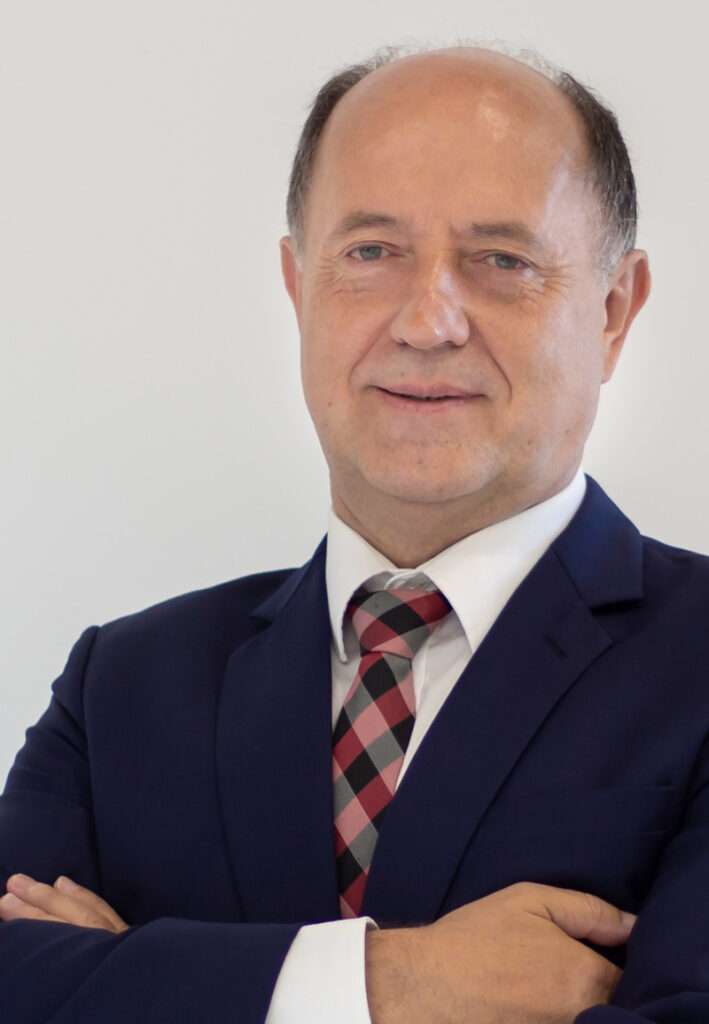
(*9 April 1959 in Glogowek, Upper Silesia, Poland)

Dr. Bert Schmucker
Bert Schmucker was born on September 23, 1940, in Thein, Falkenau County, in the Sudetenland. After the expulsion in the spring of 1946, the family first found a new home near Giessen, then in 1951 in Fulda, Hesse. There he graduated from high school in 1960, then did his one-year military service in the German Army (artillery) and completed the then still compulsory seven-month period of service in two coal mines. From the winter semester of 1961/62, he studied “Mining” at the Clausthal Mining Academy, graduating with the degree of Dipl.-Ing. in the summer of 1966, and then, as an assistant at the Institute for Mining II under Prof. Wöhlbier, received his doctorate in engineering in the summer of 1972.
After his first professional position at Kali und Salz AG, he joined Thyssen Schachtbau GmbH in Mülheim an der Ruhr in mid-1976. After working as an assistant to the Executive Board and as an employee in the foreign department, he spent two years as Technical Manager at a subsidiary in Sydney, Australia, from where he returned to take over the management of the foreign department and was a member of the company’s Executive Board as Technical Director from 1989 to 2000.
A professional reorientation took place from 2001 to 2004 with a new position as Chairman of the Board of a hospital in Oberhausen/Rhineland, after which he retired.
His professional commitment was complemented by activities on the board of the professional association GDMB-Gesellschaft der Metallurgen und Bergleute e.V. as well as the Verein von Freunden der TU Clausthal.
Since 1985 Schmucker is a member of the Rotary Club Oberhausen.in WS 1961/62 he joined the KDStV Ostland ,now AV Glückauf-Salia.
He is married, has 3 children, of which son Gunther is also a member of AV Glückauf-Salia.
Residence is Ratingen (-Eggerscheidt) since the return from Australia in 1985.

(born September 23, 1940 in Thein, Falkenau District, Sudetenland)

Prof. Dr.-Ing. Gerhard Ziegmann
Prof. Ziegmann was born and raised in Amorbach, Odenwald. After graduating from high school and serving in the German Armed Forces, he began studying mechanical engineering with a focus on “plastics technology” at RWTH Aachen University. From the 2nd semester he was active in Unitas Frankenburg, Aachen and is still an “active” AH.
After completing his studies and doctorate at the Institute of Plastics Processing (IKV), he moved to industry to work for Fa. Dornier Flugzeugbau to Immenstaad, Lake Constance. Here he was involved in the development and implementation of fiber composite structures in aircraft construction in the DO228, DO328, Airbus A320. From Dornier, Prof. Ziegmann moved to the company AKZO to Wuppertal, where he took over as head of applications engineering for the carbon and aramid fibers produced by this group.
In 1990, he moved to ETH Zurich. There, he established and expanded the construction methods laboratory for lightweight fiber composite construction concepts. In October 1998, Prof. Ziegmann finally moved to the Technical University of Clausthal to found and establish the Institute for Polymer Materials and Plastics Technology (PuK). Research focused on melt processes with thermoplastic polymers, natural fiber and high-performance fiber composites in a wide variety of application areas. In 2012, he passed on the institute’s management to his successor, but remained loyal to the TU Clausthal as a so-called “Lower Saxony Professor”, continuing to work in the field of fiber composites. After the end of this program, he is still active as a senior professor in PuK and the Clausthal Center for Materials Technology (CZM) with the supervision of research projects and doctoral students. Since 2016, Prof. Ziegmann has been an honorary member of the “Glückauf Salia” association.
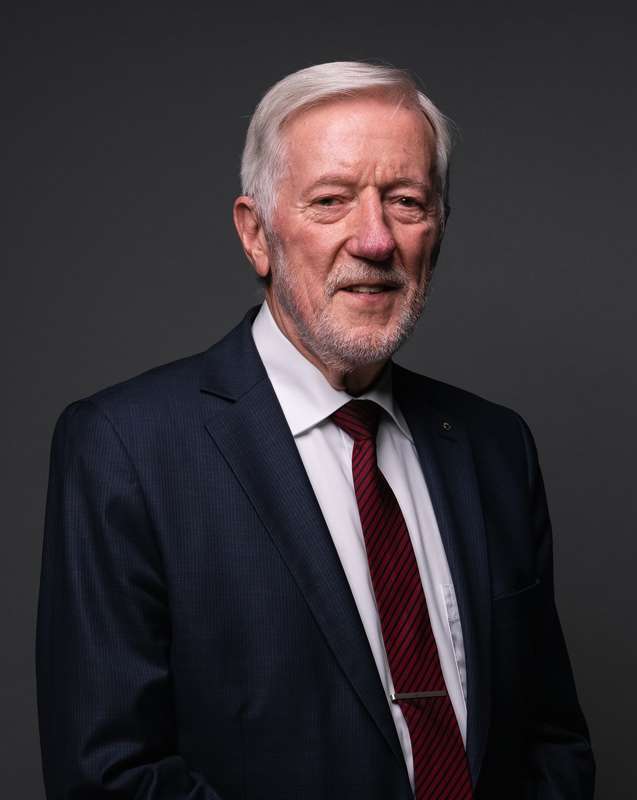
(*in Amorbach, Odenwald)
